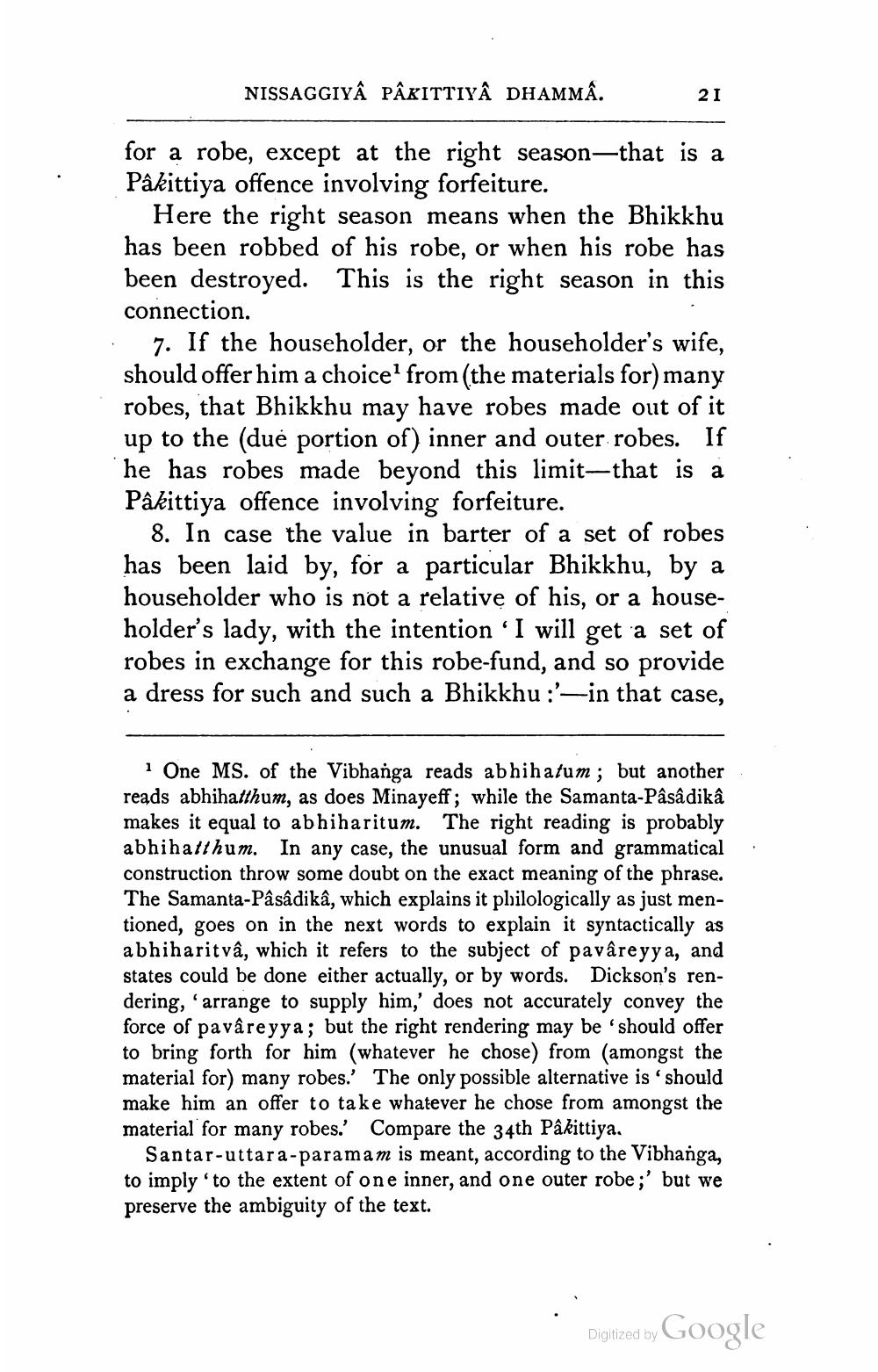________________
NISSAGGIYA PAKITTIYA DHAMMA.
for a robe, except at the right season-that is a Pâkittiya offence involving forfeiture.
Here the right season means when the Bhikkhu has been robbed of his robe, or when his robe has been destroyed. This is the right season in this connection.
7. If the householder, or the householder's wife, should offer him a choice1 from (the materials for) many robes, that Bhikkhu may have robes made out of it up to the (due portion of) inner and outer robes. If he has robes made beyond this limit-that is a Pâkittiya offence involving forfeiture.
21
8. In case the value in barter of a set of robes has been laid by, for a particular Bhikkhu, by a householder who is not a relative of his, or a householder's lady, with the intention 'I will get a set of robes in exchange for this robe-fund, and so provide a dress for such and such a Bhikkhu:'-in that case,
1 One MS. of the Vibhanga reads abhihatum; but another reads abhihatthum, as does Minayeff; while the Samanta-Pâsâdikâ makes it equal to abhiharitum. The right reading is probably abhihatthum. In any case, the unusual form and grammatical construction throw some doubt on the exact meaning of the phrase. The Samanta-Pâsâdikâ, which explains it philologically as just mentioned, goes on in the next words to explain it syntactically as abhiharitvâ, which it refers to the subject of pavâreyya, and states could be done either actually, or by words. Dickson's rendering, 'arrange to supply him,' does not accurately convey the force of pavâreyya; but the right rendering may be 'should offer to bring forth for him (whatever he chose) from (amongst the material for) many robes.' The only possible alternative is 'should make him an offer to take whatever he chose from amongst the material for many robes.' Compare the 34th Pâkittiya.
Santar-uttara-paramam is meant, according to the Vibhanga, to imply 'to the extent of one inner, and one outer robe;' but we preserve the ambiguity of the text.
Digitized by
Google




